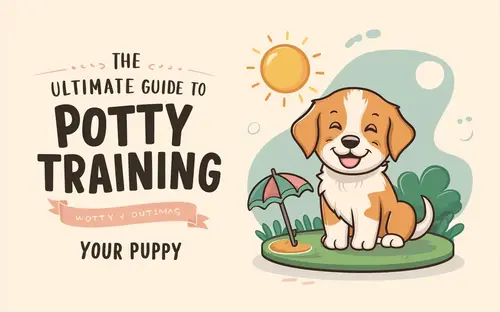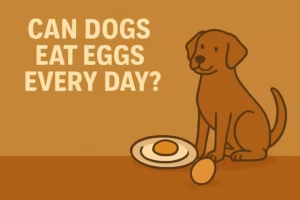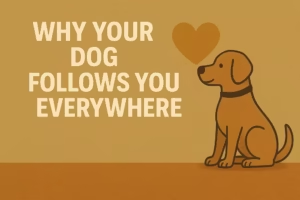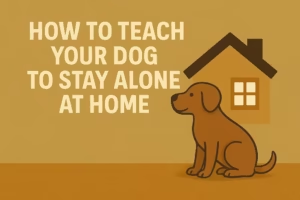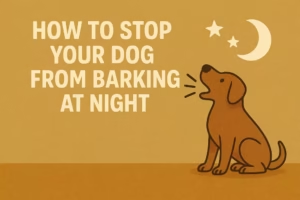Potty training your furry friend can be a daunting task, but it’s an essential part of raising a well-behaved and happy pup. Imagine coming home to a mess-free house, where your puppy knows exactly where to do their business. Sounds dreamy, right? With patience, consistency, and the right techniques, you can achieve this goal. In this ultimate guide, we’ll walk you through the ins and outs of potty training your puppy, ensuring a stress-free experience for both you and your four-legged companion.
Understanding Your Puppy’s Potty Habits
The Golden Rule: Puppies Need to Go Often
Puppies have tiny bladders and immature digestive systems, which means they need to relieve themselves frequently. As a general rule, puppies can hold their bladder for one hour per month of age, plus one hour. For example, a three-month-old puppy can hold it for about four hours. Keep this in mind when planning your potty training schedule.
Recognizing the Signs
Knowing when your pup needs to go is crucial for successful potty training. Watch out for signs like sniffing the floor, circling, or standing near the door. These behaviors indicate that your puppy needs to go out immediately.
Creating a Potty Training Schedule
Establishing a Routine
Consistency is key when it comes to potty training. Create a schedule that works for you and your puppy, and stick to it. Take your pup out first thing in the morning, after mealtimes, after playtime, and before bedtime. Additionally, make sure to take them out every two to three hours throughout the day.
Crate Training: A Valuable Tool
Crate training can be an effective tool in potty training your puppy. Dogs are naturally reluctant to soil their sleeping area, making a crate a safe and comfortable space for your pup when you can’t supervise them. Just remember, never use the crate as a punishment, and make sure it’s appropriately sized for your puppy.
Teaching the “Go Potty” Command
Choose a Command
Pick a simple command like “go potty” or “do your business” and use it consistently every time you take your puppy out. This will help them associate the command with the desired action.
Reward and Praise
When your puppy successfully goes potty in the designated area, immediately reward them with a treat and plenty of praise. This positive reinforcement will encourage them to repeat the desired behavior.
Dealing with Accidents
Stay Calm and Patient
Accidents are inevitable during the potty training process. It’s essential to remain calm and patient. Punishing your puppy for accidents will only create fear and confusion, hindering the training process.
Clean Up Properly
To prevent future accidents in the same spot, clean up any messes thoroughly with an enzymatic cleaner specifically designed to remove pet odors. Puppies are drawn to the scent of their own urine or feces, so proper cleaning is crucial.
Potty Training Setbacks and Solutions
Regression
Sometimes, puppies may seem to have it all figured out, and then suddenly start having accidents again. This regression is normal and can be caused by various factors, such as stress, changes in routine, or illness. Stay patient and consistent, and your pup will get back on track.
Overnight Potty Training
Overnight potty training can be challenging, as puppies may not be able to hold it for extended periods. Consider setting an alarm to take your pup out during the night or using puppy pads or a crate with a divider to create a separate potty area.
When to Seek Professional Help
Persistent Issues
If you’ve tried all the techniques and your puppy still isn’t making progress after several weeks, it may be time to seek professional help. A certified dog trainer or animal behaviorist can provide personalized guidance and address any underlying issues.
Medical Concerns
In some cases, potty training difficulties can be related to medical issues, such as urinary tract infections or incontinence. If you suspect a medical problem, consult your veterinarian for proper diagnosis and treatment.
Conclusion
Potty training your puppy is a journey that requires patience, consistency, and a positive attitude.
By following the tips and techniques outlined in this ultimate guide, you’ll be well on your way to a happy, well-trained pup and a mess-free home. Remember, every puppy learns at their own pace, so celebrate small victories and stay committed to the process.
With time and dedication, your furry friend will master this important skill, and you’ll both enjoy a harmonious living environment.
File size
FAQs
Q1: How long does potty training typically take?
The duration of potty training can vary greatly depending on the puppy’s age, breed, and individual learning ability. Generally, it takes several weeks to several months for a puppy to be fully potty trained. Consistency and patience are key throughout the process.
Q2: Can I use potty pads or litter boxes for potty training?
While potty pads and litter boxes can be helpful temporary solutions, they can also confuse puppies and delay the process of learning to go potty outside. It’s best to focus on teaching your puppy to go potty in the designated outdoor area from the beginning.
Q3: Should I punish my puppy for accidents?
No, punishing your puppy for accidents is counterproductive and can create fear and anxiety around the potty training process. Instead, stay calm and focus on positive reinforcement when your puppy goes potty in the right place.
Q4: What if my puppy keeps having accidents in the same spot?
If your puppy keeps having accidents in the same spot, it’s likely due to the lingering scent of urine or feces. Thoroughly clean the area with an enzymatic cleaner designed to remove pet odors, and consider blocking access to that area temporarily until the habit is broken.
Q5: How can I prevent accidents when I’m not home?
When you’re away from home, consider crate training your puppy or confining them to a small, puppy-proofed area with potty pads or a litter box. Alternatively, you can hire a pet sitter or dog walker to take your puppy out for potty breaks during the day.

